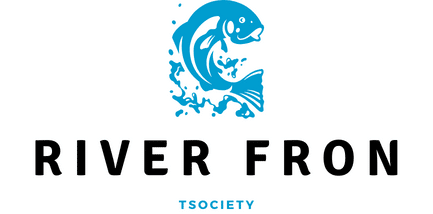How Can a Vegetarian Diet Be Best Adapted for High-Intensity Boxers?

Often, there’s a significant misconception surrounding the world of athletics; that the only way athletes can garner the necessary strength and endurance is through the consumption of a meat-driven diet. However, this couldn’t be further from the truth. As we delve into the realm of what fuels an athlete’s body, we will unravel how a vegetarian or even a vegan diet can suffice for high-intensity boxers, propelling them to peak performance.
The Importance of Protein in an Athlete’s Diet
Just as a car needs fuel to run, your bodies require protein to function optimally, especially if you’re engaging in strenuous activities like boxing. Proteins are the building blocks of your body, playing a crucial role in muscle repair and recovery after intense workouts.
Also read : What Are the Key Mental Strategies for Overcoming Plateaus in Competitive Weightlifting?
For athletes, maintaining a high protein diet is all the more important. As boxers, every punch you throw and every round you endure in the ring depletes your muscle mass. This constant wear and tear on your muscles makes protein an essential part of your dietary intake.
The question then arises: how can a vegetarian diet provide enough protein for high-intensity boxers? The answer lies in plant-based foods that are high in protein. Legumes like lentils, chickpeas, and beans, as well as whole grains and soy products, are excellent sources of protein. In fact, consuming a variety of these foods can provide all the essential amino acids necessary for muscle recovery and growth.
Also read : How Can Youth Basketball Players Utilize Video Analysis to Improve Defensive Tactics?
Balancing Energy Needs While Staying Vegetarian
A typical boxing match requires bursts of energy, sustained over several rounds. To fuel these demands, your body needs a suitable energy source. Here, carbohydrates and fats play an important role.
Carbohydrates are the body’s primary energy source. They break down into glucose, which is then used to fuel your muscles and brain. Vegan and vegetarian diets are rich in complex carbs found in whole grains, fruits, vegetables, and legumes. These not only provide energy but also help in maintaining a healthy weight and increasing endurance.
Fats, while often misconstrued as harmful, are actually vital for your health. They serve as a secondary energy source, especially during long-duration, low-intensity exercises. Vegetarian and vegan diets provide healthy fats from sources like avocados, nuts, seeds, and plant-based oils.
Enhancing Performance with Vegetarian Diets
High-intensity boxers need more than just energy and muscle repair. Ensuring optimal performance also involves maintaining good health, boosting the immune system, and speeding up recovery. A well-planned vegetarian diet can help in achieving these goals.
Vegetarian and vegan diets are inherently rich in antioxidants and anti-inflammatory compounds, which can enhance recovery after exercise and reduce the risk of injury. Foods such as berries, nuts, seeds, and vegetables are loaded with these beneficial compounds.
Furthermore, a plant-based diet can help in maintaining optimal body weight, which is essential for boxers. Plant-based foods tend to be lower in calories and higher in fiber, making them more filling and aiding in weight management.
Dietary Planning for High-Intensity Boxers
While it’s clear that a vegetarian diet can be beneficial for high-intensity boxers, it’s essential to have a well-planned and balanced diet to meet all the nutritional needs.
Firstly, ensure that your meal plan includes a mix of protein, carbohydrates, and fats. Aim for a variety of foods to ensure you’re getting all the necessary micronutrients. For instance, while legumes are a good source of protein, they also provide iron, a nutrient crucial for athletes.
Secondly, timing your meals can enhance performance and recovery. Consider consuming a high-quality protein source and complex carbs within 30 minutes after training. This can help replenish energy stores and initiate muscle repair.
Lastly, hydration is just as essential as your food intake. Ensure you’re drinking enough water before, during, and after your workout to prevent dehydration, which can impair performance and recovery.
Transitioning to a Vegetarian Diet
Shifting from a meat-based to a plant-based diet can seem daunting. However, it doesn’t have to be an overnight process. Gradually incorporating more plant-based foods into your diet can make the transition more manageable.
Start by including a variety of fruits, vegetables, whole grains, and plant-based protein sources in your meals. Over time, you’ll become more comfortable with these foods and understand how they affect your performance and recovery.
Remember, the goal isn’t to follow a strict diet but to find a sustainable eating pattern that supports your health and optimizes your performance as a high-intensity boxer. Don’t be afraid to experiment with different foods and meals, and see what works best for you. It’s also worth consulting a registered dietitian who can provide personalized advice based on your specific needs and goals.
Supplementation and Nutrient Consideration for Vegan Athletes
When it comes to adopting a plant-based diet, it’s crucial to note that some nutrients may require extra attention. These include Iron, Vitamin B12, Omega-3 fatty acids, and Zinc. However, with careful planning, these nutritional needs can be met through a vegetarian or vegan diet.
Iron is essential for transport of oxygen in the blood and can be found in legumes, whole grains, nuts, and seeds. But the iron in plant-based foods is not as easily absorbed as that from animal sources. Hence, consuming foods rich in Vitamin C, such as citrus fruits or bell peppers, alongside iron-rich foods can enhance absorption.
Vitamin B12 is crucial for nerve function and the production of red blood cells. It’s mainly found in animal products, but vegan athletes can easily meet their needs through B12 fortified foods or supplements.
Omega-3 fatty acids, known for their anti-inflammatory properties, play a role in brain function and muscle recovery. Chia seeds, flaxseeds, and walnuts, along with algae-based supplements, are great sources of Omega-3s for those on a plant-based diet.
Zinc, important for immune function and protein synthesis, is present in whole grains, legumes, nuts, and seeds. However, similar to iron, its absorption can be improved by consuming these foods with Vitamin C-rich foods.
By considering these nutrients and planning the diet accordingly, vegetarian and vegan diets can provide all the necessary nutrients for endurance athletes.
The Scientific Evidence Supporting Vegetarian and Vegan Diets for Boxing Performance
There is a growing body of scientific literature available on Google Scholar, PubMed, ncbi nlm, nlm nih, suggesting that a well-planned vegetarian or vegan diet can support the demands of high-intensity sports like boxing.
Plant-based diets, rich in carbohydrates, can enhance exercise performance by fuelling the muscles efficiently. Moreover, a higher intake of antioxidants and anti-inflammatory compounds from plant foods can speed up recovery and reduce exercise-induced muscle damage.
Amino acids, the building blocks of proteins, are essential for muscle growth and recovery. Studies have shown that athletes can get all the required amino acids from plant sources, negating the myth that animal-based proteins are superior.
Furthermore, research indicates that vegetarian and vegan diets can aid in maintaining optimal body weight—a critical factor for boxers. These diets are naturally low in saturated fats and high in fiber, which is beneficial for weight management and heart health.
In conclusion, a well-formulated plant-based diet can meet the nutritional needs of high-intensity boxers and may even provide additional health benefits. Transitioning to a vegan or vegetarian diet, while paying attention to certain nutrients, can be a viable option for those looking to optimize their boxing performance.
However, as with any diet, it’s important to remember that individual needs may vary, and what works for one athlete may not work for another. Therefore, it’s always best to consult with a registered dietitian or a nutrition professional when considering significant dietary changes.
